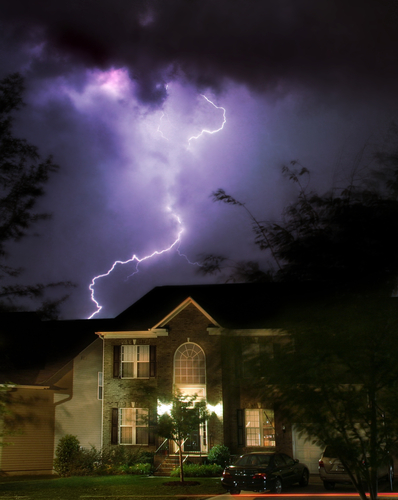With Hurricane Florence quickly approaching, it is important to make sure your home is prepared to withstand high winds, heavy rain and flooding. Below are some ways to prepare your HVAC unit for the storm and how to handle your appliances after the storm is over.
HVAC Preparation Before the Hurricane
- Turn off the breakers to your HVAC, heat pump, air handler and/or gas furnace.
- If you have a gas furnace, turn off the gas supply.
- Secure your outdoor unit by making sure all bolts are tight. Use hurricane straps if possible.
- Protect equipment from flying debris.
- Elevate your HVAC unit on a platform if flooding is an issue.
HVAC Safety After the Hurricane
If your HVAC system was exposed to high winds or flooding, or if it sustained any damage, it will need to be inspected and possibly repaired.
DO NOT TURN ON YOUR HVAC SYSTEM UNTIL YOU HAVE IT INSPECTED BY A PROFESSIONAL.
Gas and Oil Furnace/Boiler
Gas and oil furnaces have valves and controls that are vulnerable to water damage from floods of heavy rain, and the damage may not be visible. Corrosion can begin inside the valves and controls, but it might appear as if there is no damage. For safety and reliability purposes, have it inspected by a technician.
Electric Furnace
As with gas furnaces, electric furnaces are also susceptible to corrosion and water damage. If flood water reached your furnace, do not turn it on until it has been inspected.
Propane Heating
Use extreme caution if there is the potential for propane leaks. Have propane equipment checked, repaired and/or replaced by a contractor as quickly as possible after a flood. In every case, contractors must replace all valves and controls that have been in contact with floodwater. The gas pressure regulator on a propane system should also be checked. This regulator contains a small vent hole to sense outside pressure. For effective gas pressure regulation, this hole must always remain unobstructed. During a flood, debris can easily plug the hole, causing a dangerous malfunction or corrosion.
Radiant Floor Heat
With this type of heating system, electrically-heated cables or tubing circulating a fluid are embedded underneath or within the flooring material. If the floor becomes wet, it can weaken and possibly crack and may need replacement. Both electrical cables and tubing can be damaged due to a wet floor, so you should consult a professional to determine whether the system can continue to be used.
Heat Pump and/or Air Conditioner
Air conditioning and heat pump systems have power and control wiring between the indoor and outdoor parts of the system, as well as piping that allows refrigerant to flow through the system. If floodwater has moved either the indoor or outdoor units of a split system even by a small amount, there is a potential for refrigerant leaks. The system will then require a major repair or full replacement. If the refrigerant system remains intact after the flood, the entire system should be cleaned, dried and disinfected. You should also check the unit’s electrical and refrigeration connections, including all control circuits.
Ductwork
A contractor will not try to salvage duct insulation that has been in contact with floodwater, but it will have to be replaced because it is impossible to decontaminate. The contractor will also clean, dry, and disinfect the ductwork itself. A thorough job will require disassembling the ductwork, reassembling it, and then re-sealing the joints for improved insulation and to reduce heat and cooling loss.
Water Heater
If your water heater was exposed to flood water, it should be replaced. Valves, controls and the thermostat can corrode with water damage, and insulation around the unit will likely be contaminated. Even if the water heater has been cleaned out and is working properly, there is still a chance for corrosion later on, especially with the pressure release valve.
Warranty Services
HVAC manufacturers offer warranties on equipment, but factory warranties DO NOT cover damage by floods, high winds or other catastrophic events. If your unit needs replaced after the storm, you should work with your home insurance provider.
If your HVAC system is damaged or impacted by the storm, please contact us so our technicians can inspect, repair, and/or replace your unit.

